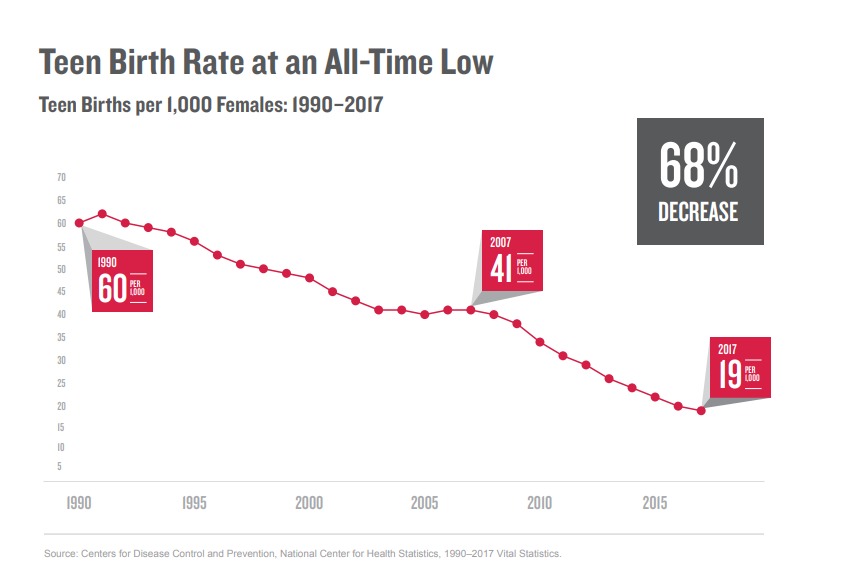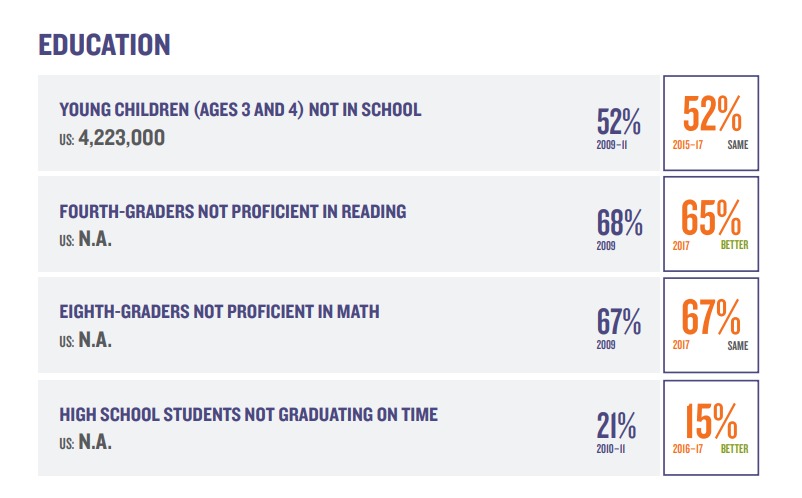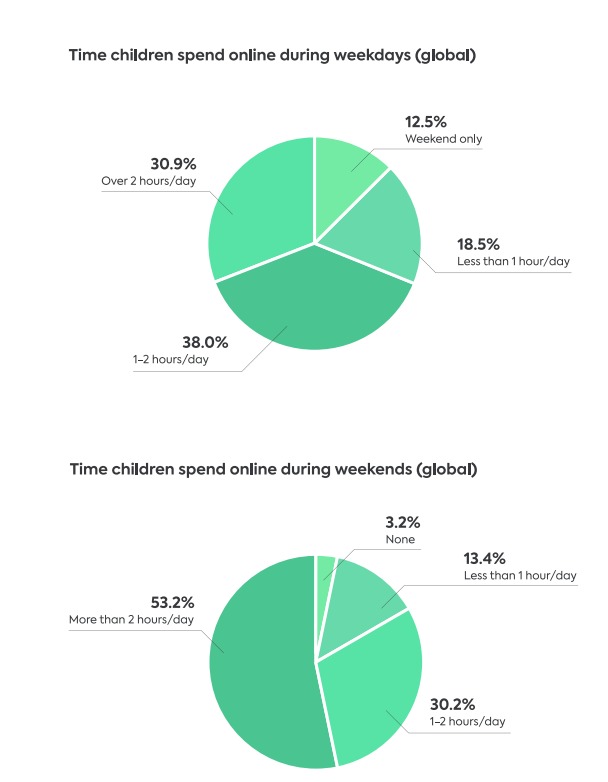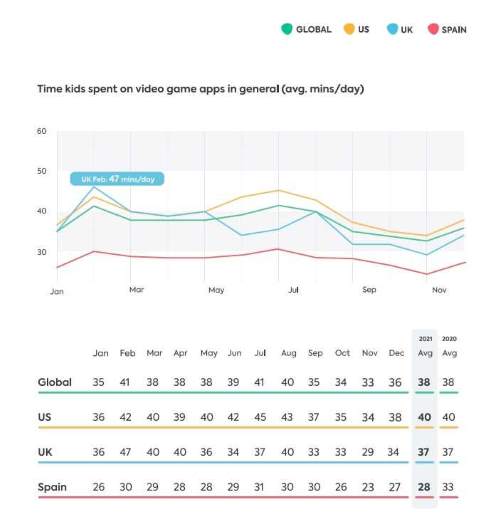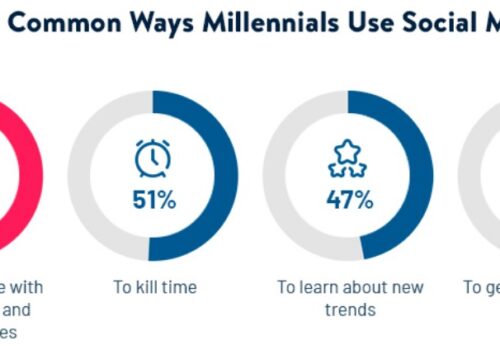Enter the realm of Gen Alpha, the generation born entirely in the 21st century.
These young trailblazers have enthusiastically embraced technology from an early age, and are now making significant contributions to the world with their digital expertise.
As Gen Alpha continues to mature, it’s only a matter of time before they start surpassing the technological skills of their elders.
Who knows, they may soon even become our teachers on how to navigate the ever-evolving world of the internet!
A staggering 36.0 million children in the US are already active internet users, surpassing even their teen counterparts by a remarkable 11.4 million, as our forecast reveals.
The following charts provide a fascinating insight into this dynamic demographic.
| Category | Statistic |
|---|---|
| Population Growth | Approximately 2.8 million Gen Alphas are born weekly, with the majority in India, China, and Indonesia. |
| Demographic Diversity | 13% of the US population is expected to be Gen Alpha by 2024, with 47% identifying as non-white. |
| Life Expectancy | Gen Alpha has a 16% higher life expectancy than Millennials, with an average of 73 years for those born in 2020. |
| Education Priority | 55% of Gen Alpha parents expect their children to receive a better education than previous generations. |
| University Degrees | Predictions suggest that half of Gen Alphas will earn a university degree, supported by the high use of technology in the classroom (84%). |
| Literacy Challenges | 65% of fourth-graders are not proficient in reading. |
| Values & Beliefs | Gen Alpha prioritizes family (71%) and advocates for acceptance regardless of differences (93%). |
| Social Responsibility | 66% of Gen Alpha prefers to buy from companies making a positive difference in the world. |
| Influencer Influence | 25% of Gen Alphas are influenced by influencers for shopping inspiration. |
| Early Brand Awareness | Gen Alpha’s brand recognition starts as young as 3 years old. |
| Screen Time | Children aged 8 to 12 spend an average of 4 hours and 44 minutes daily on screens. |
| Outdoor Activities | 47% of Gen Alphas express a desire to balance screen time with outdoor activities. |
| Streaming Services | Gen Alphas use an average of 4.2 streaming services. |
| Gaming Preferences | Popular games include Minecraft (played by 58%) and Roblox (played by 43%). |
| Play Style | Gen Alpha exhibits a preference for interactive and imaginative play. |
Gen Alpha Stats, Trends & Insights for 2026
- Approximately 2.8 million Generation Alphas are born globally each week, predominantly in India, China, and Indonesia, marking them as part of the largest and most diverse generation in history, with 13% of the US population being Gen Alpha by 2024 and 47% identifying as non-white.
- This generation is expected to live significantly longer, with a 16% higher life expectancy than Millennials, translating to an average life expectancy of 73 years for those born in 2020.
- Education is a priority, with 55% of Gen Alpha parents expecting their children to receive a better education than previous generations.
- Predictions suggest half of Gen Alphas will earn a university degree, supported by the fact that 84% of American students use technology in the classroom. However, literacy challenges are evident, as 65% of fourth-graders are not proficient in reading.
- The values and beliefs of Gen Alpha emphasize family, equality, and acceptance, with 71% placing family at the top of their priorities and 93% advocating for acceptance regardless of differences. They also show a strong inclination to support companies that make a positive difference in the world, with 66% preferring to buy from such businesses.
- Consumer behavior reveals that 25% of Gen Alphas are influenced by influencers for shopping inspiration, showing a preference for brands that align more with Millennial values than Gen Z.
- This generation is already engaging with the economy, with their brand recognition starting as young as 3 years old.
- When it comes to entertainment, Gen Alphas are screen-savvy, with children aged 8 to 12 spending an average of 4 hours and 44 minutes daily on screens, yet 47% express a desire to balance screen time with outdoor activities. They are active users of 4.2 streaming services on average and have a particular fondness for singing and dancing TV shows.
- Gaming preferences highlight a penchant for creativity, with popular choices including Minecraft and Roblox, played by 58% and 43% of Gen Alphas, respectively, in the past month. This reflects the generation’s inclination towards interactive and imaginative play.
Leading 5 Stats About Generation Alpha:
Every week, a staggering 2.8 million Gen Alphas are welcomed into the world globally. A remarkable 65% of these future leaders will embark on careers that are yet to be invented.

Notably, Generation Alpha stands as the most diverse generation in the history of the US. Anticipating a bright future, half of Gen Alphas are projected to attain university degrees.
An inspiring 66% of these young minds prioritize supporting companies that contribute positively to the world.
Insights into Generation Alpha-
These insights into Generation Alpha shed light on their unique characteristics, perspectives, and values, shaping the way they engage with the world and influencing the trends and dynamics of our times.
Source: Pexels
1. Growing in Numbers: Birth Rate of Gen Alpha
Around the world, approximately 2.8 million Gen Alpha individuals are born each week, according to data from McCrindle.
Source: aecf-kidscountdatabook
This consistent and significant birth rate is shaping the generation’s size and influence on a global scale.
2. A Historic Generation: Gen Alpha’s Global Presence
By the year 2025, it is projected that the population of Generation Alpha will surpass 2 billion. Notably, countries like India, China, and Indonesia are leading in Gen Alpha births. As a result, Generation Alpha is poised to become the largest generation in history.
3. Embracing Diversity: Gen Alpha’s Multicultural Composition
Generation Alpha is notably the most diverse generation in the history of the United States. With shifts in racial demographics over the years, around 47% of American children now identify as non-white. This diversity is shaping the generation’s perspectives and experiences.
4. Advocates of Fairness: Gen Alpha’s Social Values
Impressively, 96% of Gen Alphas aged 7-9 strongly believe in the importance of treating everyone fairly, regardless of their appearance. Additionally, their concerns extend to ensuring adequate food and housing for everyone, reflecting their empathetic outlook.
5. Longevity and Future Expectations: Gen Alpha’s Extended Lifespan
Generation Alpha is anticipated to live longer lives compared to previous generations. The global average life expectancy for Gen Alphas born in 2020 is projected to be around 73 years, which is 16% longer than the life expectancy of their Millennial parents. This longer lifespan is a testament to improvements in healthcare and quality of life.
6. Family-Centric Values: Gen Alpha’s Priorities
Wunderman Thompson’s research reveals that family holds significant importance for Generation Alpha. An overwhelming 71% of surveyed Gen Alphas consider family to be the most important aspect of life. Their top priorities also include friends, happiness, health, and education. In contrast, concepts like television, social media, and fame hold less significance for them.
Education & Career Statistics for Generation Alpha
As Generation Alpha grows up, they find themselves in an extraordinary era of learning and work. The integration of remote learning and educational technology offers them diverse avenues to acquire knowledge.
Source: Pexels
This tech-savvy generation is stepping into a world of careers that are yet to be imagined.
Source: aecf-kidscountdatabook
- Setting New Educational Standards:
Around 50% of Generation Alpha is projected to achieve university degrees, marking them as one of the most highly-educated generations ever.
This estimation by Mark McCrindle anticipates that 90% will obtain high school diplomas, outpacing Gen Z teenagers’ rate of 80%. It’s expected that half of Generation Alpha will successfully complete their secondary education journey.
- Tech Integration in Education:
A remarkable 84% of American students embrace technology in their classrooms, an influence accelerated by the widespread adoption of remote learning during the COVID-19 pandemic.
Source: qustodio.com
A majority of American Gen Alphas, especially the elder ones, experienced a full year of remote education. A significant 60% have access to school-provided devices, with an additional 14% utilizing their own devices from home.
- Literacy Challenges:
Shedding light on an important metric for education outcomes, it’s revealed that 65% of fourth-graders are not proficient in reading. This has critical implications, as fourth grade often signifies the transition to learning other subjects through reading.
With literacy being a cornerstone of education, addressing this challenge becomes imperative for educators today.
- Unveiling Future Career Paths:
A striking 65% of Generation Alpha is projected to occupy jobs that do not currently exist.
The rapid pace of technological advancement is giving rise to entirely novel industries and fields by the time these young individuals join the workforce.
They will also be part of today’s emerging sectors, such as artificial intelligence and blockchain technology.
- Making a Difference and Embracing Technology:
The aspiration to make a positive impact resonates strongly with Generation Alpha’s career aspirations. About 67% of 6 to 9-year-olds express a desire for careers that contribute to saving the planet.
The common thread among them is the intent to effect change, with 59% aiming for roles involving saving lives, and 51% aspiring to utilize technology for the greater good.
- Surge in STEM Opportunities:
The outlook for STEM (science, technology, engineering, and math) careers appears promising, with a projected 11% increase in opportunities over the next decade.
As the oldest members of Generation Alpha gradually enter the workforce by 2031, STEM roles are set to grow at double the rate of all jobs combined. These roles also command a higher median annual salary of $95,000, compared to $45,000 for other occupations.
Why is Generation Alpha known as screenagers?
Generation Alpha, the cohort born entirely within the 21st century, is unmistakably molded by technology.
They’re immersed in a realm of smartphones, tablets, video games, self-driving trains, autonomous cars, and technological advancement.
This tech landscape, unique to their generation, defines their reality, and they’re adapting to it faster than ever before.
Source: Pexels
Their journey is propelled by rapid technological strides. Radios took 38 years to reach 50 million users, while television accomplished it in 13.
The iPod achieved the feat in a mere four years, the internet in three, Facebook in one, and the Pokémon Go craze surged in just 19 days!
But what’s even more intriguing is their navigation through the digital age from the get-go. They’re emerging as a part of a global experiment, where screens are introduced from infancy as comforters, entertainers, and educators.
This screen-centric upbringing has profound implications, influencing everything from attention spans to how education is gamified, from enhancing digital literacy to reshaping social interactions.
Source: qustodio.com
Their formative years transpire within this grand era of screens, making the impact more pronounced.
Termed as “screenagers,” Generation Alpha, or even “Generation Glass,” is inseparable from their devices. They’ve embraced these digital companions since birth, and it’s nearly impossible to separate them.
Their technological exposure, ingrained since their pre-verbal days, remains a story in progress. We’re on the brink of unraveling the outcomes of their screen interactions, both positive and transformative.
Undoubtedly, Generation Alpha’s relationship with technology will bestow numerous benefits. However, as with any generation, there will be challenges to navigate.
This young cohort is poised to evolve uniquely in a world where screens are more than just tools – they’re integral to identity, communication, and learning. Their journey will continue to unfold, shaped by the very screens that illuminate their path.
Generation Alpha’s Entertainment Habits and Stats Unveiled
Ever wondered how Generation Alpha keeps entertained in this digital age?
Source: Pexels
Let’s dive into the latest stats to get a glimpse of their media preferences and the dynamic between screens and the outdoors.
- Screen Time Dominance:
Generation Alpha stands out for their screen time, thanks to early access to smartphones and tablets. Kids aged 8 to 12 spend around 4 hours and 44 minutes daily in front of screens. Their tech-savvy upbringing is evident in their engagement. - Balancing Act:
Surprisingly, nearly half of Gen Alphas (47%) prefer a balanced approach to their free time. They split it between screens and outdoor activities. This trend reflects a shift away from excessive screen time, with more kids opting for outdoor experiences. A significant portion (27%) prefer outdoor play, indicating an inclination towards nature and exploration. - Streaming Savvy:
Gen Alphas are fluent in streaming, averaging 4.2 services each. This tech-savvy bunch enjoys TV and movies, with 59% naming it their favorite weekend activity and 50% relishing it after school. For 8-11-year-olds, TV shows and movies are top-tier favorites. - Showtime Choices:
When it comes to TV genres, singing and dancing take center stage. A considerable 34% love danceable shows, while 33% groove to singing competitions. Meanwhile, 30% are captivated by sports content, and 26% enjoy culinary adventures. Sibling influence is strong, with 27% watching what their brothers or sisters are watching. - Creative Gamers:
Creativity shines among Gen Alpha gamers, with 38% seeking video games that foster building and creating. This resonates with their innovative mindset. Minecraft is a clear favorite, with 58% playing it in the last month, followed by Roblox at 43%.
Generation Alpha’s entertainment habits mirror their multifaceted interests, reflecting a blend of digital engagement, outdoor pursuits, and creative endeavors. It’s evident that they’re crafting a diverse and tech-savvy approach to staying entertained.
The Bright Future for the Generation Alpha
The prospects for Generation Alpha are undeniably positive, even amid the backdrop of significant changes.
This generation is poised to experience longer lives, extended careers, enhanced education, increased material well-being, and a more global perspective.
Each generation is a reaction to the one preceding it. While Baby Boomers championed protests and early career advancement, Millennials displayed conservative tendencies with a penchant for structured planning.
Source: Pexels
When we compare Generation Alpha with Millennials, we anticipate Alphas to become parents earlier, primarily driven by biological factors.
This could lead to a younger age for becoming parents. Moreover, Generation Alpha is likely to seek a balance between family and career, a trend even stronger than that of their Millennial predecessors.
The issues of pay equality and road concerns might not resonate with Generation Alpha. Instead, they’ll embrace a lifestyle known as ‘rentvesting’, placing a premium on accommodation as a service and prioritizing personal preferences.
Healthcare will take an advanced turn for Generation Alpha. They will encounter a shift from conventional health insurance to user-pay systems or health savings funds.
They will also exhibit greater awareness of their diet, opt for healthier food choices, and embrace plant-based proteins.
Generation Alpha’s upbringing will be marked by a heightened awareness of sustainability and climate change, influenced by their Generation Z siblings.
They’ll witness changes in mainstream dietary preferences, including non-dairy options, and engage with devices that monitor health and exercise.
As the youngest Alphas come of age, traditional aspects of life like owning a car or sitting for written exams might lose significance. Public transport, driverless cars, and alternative modes of assessment will reshape their world.
Amidst all these transformations, Generation Alpha’s essential human needs will remain constant. The desire for acceptance, community, and belonging will continue to drive their aspirations.
These foundational needs, while evolving with time, will guide Generation Alpha as they navigate the upcoming years and transition into adulthood.
In essence, as the world evolves, Generation Alpha’s journey will be illuminated by their enduring quest for connection and a sense of belonging, providing a compass for leaders, parents, organizations, and communities to steer them toward a fulfilling adulthood.
Here’s a table outlining the different topics across the generations:
| Topics | Generation Alpha | Generation Z | Millennials | Generation X | Baby Boomers |
| Education Outcomes | Employable | Exam results | Professional credentials | Life skills | Changing trends |
| School Focus | Participative | Peers | Learning skills | Influencers | Adaptable |
| Marketing | Coordinator | Customized | Influencers | Collaborative | Enlarger |
| Work Style | Coordinator | Collaborative | Adaptable | Entrepreneurial | Predictive |
| Ideal Leader | Empowerer | Empowerer | Co-creators | Enlarger | Continuous volatility |
| Payments | Credit card | Credit card | Credit card | Credit card | Credit card |
| Technology | Touchscreen | Voice-recognition | Digital | Virtual | Gesture control |
| Consumer Trends | Customized | Personalized | Changing trends | Predictive | Continuous volatility |
| Advice | Empowerer | Collaborative | Adaptable | Enlarger | Continuous volatility |
| Business Context | Entrepreneurial | Adaptable | Changing trends | Continuous volatility | Continuous volatility |
FAQs
🌍 How diverse is the Gen Alpha generation in terms of demographics?
Gen Alpha is highly diverse, with 47% of them identifying as non-white. In the US, it's expected that 13% of the population will be Gen Alpha by 2024.
📺 What are Gen Alpha's entertainment habits?
Gen Alpha is screen-savvy, with children aged 8 to 12 spending an average of 4 hours and 44 minutes daily on screens. However, 47% express a desire to balance screen time with outdoor activities.
📽️ How many streaming services do Gen Alpha kids typically use?
Gen Alpha children are active users of an average of 4.2 streaming services for their entertainment needs.
🎮 What gaming preferences do Gen Alpha kids have?
Gen Alpha shows a penchant for creative and interactive play, with popular gaming choices including Minecraft (played by 58%) and Roblox (played by 43%) in the past month.
🤳 How are influencers influencing Gen Alpha's consumer behavior?
About 25% of Gen Alphas are influenced by influencers for shopping inspiration, indicating their impact on consumer choices.
Quick Links:
- Social Network Usage Stats
- Procrastination Stats
- Logo Statistics
- Video Marketing Stats
- TikTok Statistics
- E-Learning Stats
Conclusion: Generation Alpha 2026
In the present day, Generation Alpha stands as the freshest cohort inhabiting our planet. With their complete arrival slated for 2025, they’re projected to form the largest demographic.
These young Alphas exude a remarkable familiarity with technology, coupled with a profound awareness of environmental and social concerns.
As Generation Alpha progresses through time, its anticipated influence on brands, institutions, and governments is bound to imprint a significant mark on the forthcoming decades of human history.
Their collective aspirations and values are poised to shape the world in unprecedented ways.



